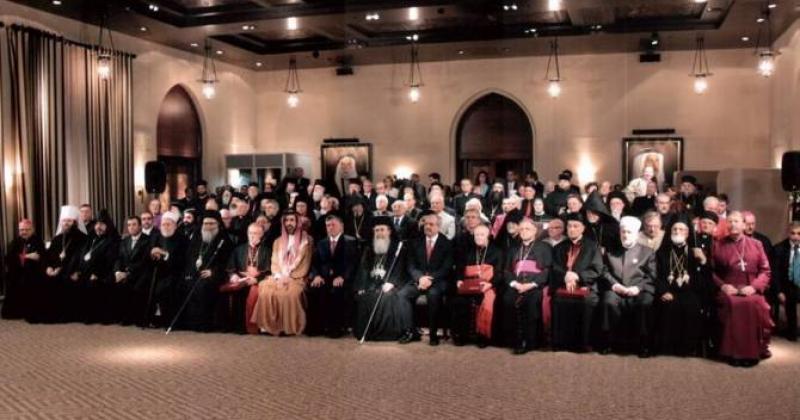With the onset of September this year, the memory is still rife with the events of the important conference which His Majesty King Abdullah II Ibn Al Hussein had called for last year in Amman. At the time, the conference had a remarkable title, namely ”The challenges Facing Arab Christians”. It was attended by a large number of religious and civilian figures from the Middle East, as well friends from several countries around the world.
The conference, which took place on September 2-3, 2013, addressed some of the painful issues as revealed by the heads of churches in areas witnessing conflagrations. The conference revealed some hopes despite the bleakness that had prevailed.
Upon receiving the delegations participating in the conference in his palace, the King warned against views which disseminate hatred, rejection of the others and extremism. He said: “Our region is undergoing a state of violence and intra-religious, sectarian, as well as ideological conflicts. We have for long warned against the adverse consequences of such a situation, which produces patterns of behavior that are alien to our traditions and humanitarian and cultural heritage based on the principles of moderation, tolerance, coexistence and acceptance of others. These common challenges and difficulties, that we face as Muslims and Christians, necessitate concerted efforts and full cooperation among us all to overcome. We should agree on a unifying, rather than divisive, code of conduct.”
He added that “the responsibility rests with the family, schools, media, mosques and churches in the refinement of the human personality and the citizen, and raise the spirit of cooperation and positive and in particular the acceptance of other - religious, respect and work-in order to build communities. “
From September 2013 to September 2014, we view further bleakness, bloodshed and nonpareil increase in the views that disseminate hatred and hostility. This is due to the fact that the past year witnessed some bloody events that destroyed several bridges of communication and cordiality. Several participant patriarchs had come from volatile regions that emanate pain, namely Jerusalem, Baghdad, Damascus, Beirut and Cairo. This period witnessed kidnapping of nuns, attacks on churches in Syria, in addition to one of the bloodiest chapters in history, namely the launching of the so-called Islamic State as well as the blatant and inhumane acts of expelling Christians from Mosul and nearby towns and villages.
What was really warned against in the past year has become a sad reality and a disgrace to humanity as related to the bloody desire to eliminate the active components of the East. Today, we are face-to-face with this painful reality, realizing the state of Arab frustration prevalent in many countries, the stoking of conflicts and hatreds, revenge and intolerance which can only be described as repugnant and blind.
What is next then? Another conference? This might be possible and necessary. Yet the first and most exigent action to be undertaken is halting the harrowing and forced displacement, as well as restoring the displaced to their cities, towns, villages, schools and churches, which have been deserted or turned into hotbeds for terrorists. Secondly, we must reinforce calls for maintaining justice, love and assisting the brothers fleeing the oppression of man by his brothers. In Jordan, we have live models for hosting the displaced, where Caritas - Jordan shelters them despite the need to have it continuously supported by institutions and individuals. Thirdly, we have to bolster the calls for moderation which King Abdullah II solely makes, reiterating that he condemns persecution of Christians, which he views as strange and non-representative to Islam.
We definitely have to reinforce the views of King Abdullah II, who was the first to call last year to be cautious in view of the emergence of extremism and narrow-mindedness. Today, he is launching initiatives to extinguish the fires of persecution and the attempts to eliminate the others—as well as labeling them as infidels.
